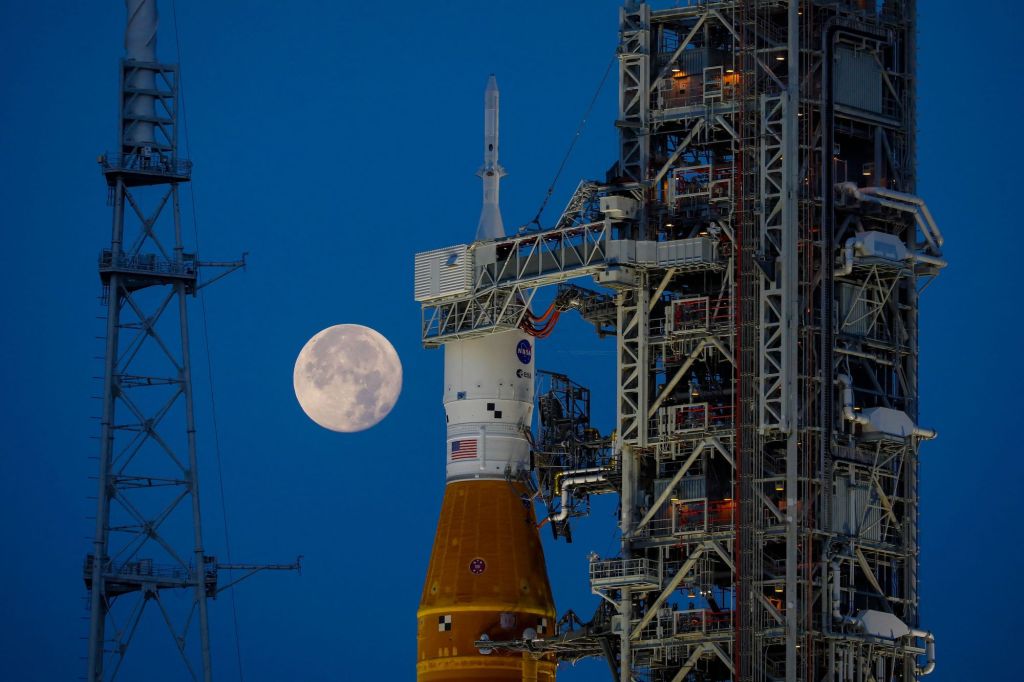Lockheed Martin announced today the creation of a wholly owned subsidiary called Crescent Space Services that will focus on infrastructure for the moon, the latest sign that the aerospace and defense giant is bullish on the future of a lunar economy.
The new venture will focus initially on a communications and navigation network in cislunar orbit it’s calling Parsec. The Parsec network will be owned and operated by Crescent, with Lockheed designing and building the spacecraft. The first satellite is anticipated to launch in 2025, timed to arrive in cislunar orbit prior to NASA’s third Artemis mission, which will land humans on the moon.
Lockheed installed Joe Landon as the company’s new CEO. Landon previously served as Lockheed Martin Space’s VP of advanced programs development, where he led strategy and business development for the company’s commercial space projects. Prior to that, he served as CFO of asteroid mining venture Planetary Resources.
Crescent was born out of a shifting demand from customers, Landon explained to TechCrunch. Over the past decade, customers — primarily NASA — started to shift from buying objects, like spacecraft, to buying capabilities.
“That created a new opportunity for Lockheed where we needed to adapt,” he said. “Lockheed Martin traditionally is a technology developer and manufacturer of really great systems. But what we needed and what the market is really demanding is a service.”
While Crescent is starting with the Parsec network, the company intends to eventually expand into providing other infrastructure services, like power and mobility. These services will likely benefit from Lockheed’s existing programs, like its autonomous moon rover in development with General Motors, and its initiatives on in-space solar systems.
Interest in a lunar economy has skyrocketed in the past few years. NASA has been a major driver of this interest, handing out major contracts to companies like SpaceX, Astrobotic and others for services spanning launch to payload delivery on the lunar surface. But if government initiatives are leading the charge, the private markets are not far behind: In a report published last year, McKinsey & Co. found that the share of private investment into the space economy that’s focused on “lunar and beyond” initiatives has steadily risen, accounting for 10-15% of overall private investment into space-related companies.
Crescent is trying to get out ahead of this burgeoning market, Landon said. Once all the elements of infrastructure are in place, the company may even think of in-space services beyond lunar orbit.
“Once we’re set up on the moon, we can go beyond the moon,” he said. “If the market goes to need communications around Mars, for instance, we’d be really set up to provide that as well.”































Comment